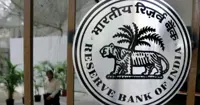China extends $25 billion to boost ties with ASEAN
13 Apr 2009
China will extend $25 billion in aid and credit to members of the Association of Southeast Asian Nations (ASEAN), officials said on Sunday.
Chinese foreign minister Yang Jiechi, meeting with envoys from the 10 ASEAN countries - Indonesia, Singapore, Malaysia, Thailand, the Philippines, Brunei, Burma, Laos, Cambodia and Vietnam - in Beijing, said China will establish a $10 billion China-ASEAN investment cooperation fund to be used for infrastructure construction, energy production, information technology and communications, the state-run news agency Xinhua reported.
Yang also revealed China plans to offer $15 billion in credit to ASEAN countries during the next three to five years, as well as $39.7 million in special aid to Cambodia, Laos and Myanmar to meet what Chinese officials called urgent needs in those countries.
Yang made the announcements after returning from Thailand, where the scheduled ASEAN summit was postponed due to domestic unrest.
"The overall thought for China-ASEAN cooperation is that the two sides should rise to difficulties in face of the grim global financial crisis, and make efforts to convert unprecedented challenge into opportunity for closer pragmatic cooperation and common development," Yang told reporters.
China's proposals for strengthening its cooperation with ASEAN include the signing of an investment agreement. The agreement, which was scheduled to be signed during the scheduled meetings, would be conducive to the establishment of the China-ASEAN free trade area.
This demonstrates that that the series of relevant measures China has already decided to adopt will remain unchanged and that China has full confidence in the future of China-ASEAN friendly cooperation, despite the postponement of ASEAN meetings.
Asean was set up in 1967 in part to counter influence from communist China but has since become a vehicle for close ties.
Strengthening and deepening cooperation is the common wish of the two sides, and is also an important avenue for fighting protectionism and enhancing their ability to resist risks in the current economic circumstances.
Furthermore, the China-ASEAN free trade area, expected to be completed in 2010, will play an important and profound role in strengthening China-ASEAN relations and boosting cooperation in the whole of East Asia.
Although not an ASEAN member, China's growing economic clout, huge market and competitive exports make it an important participant in ASEAN summits.
However, tensions persist over competing claims to the South China Sea and Chinese plans for dams that are opposed by other nations along the Mekong river.




.webp)


























